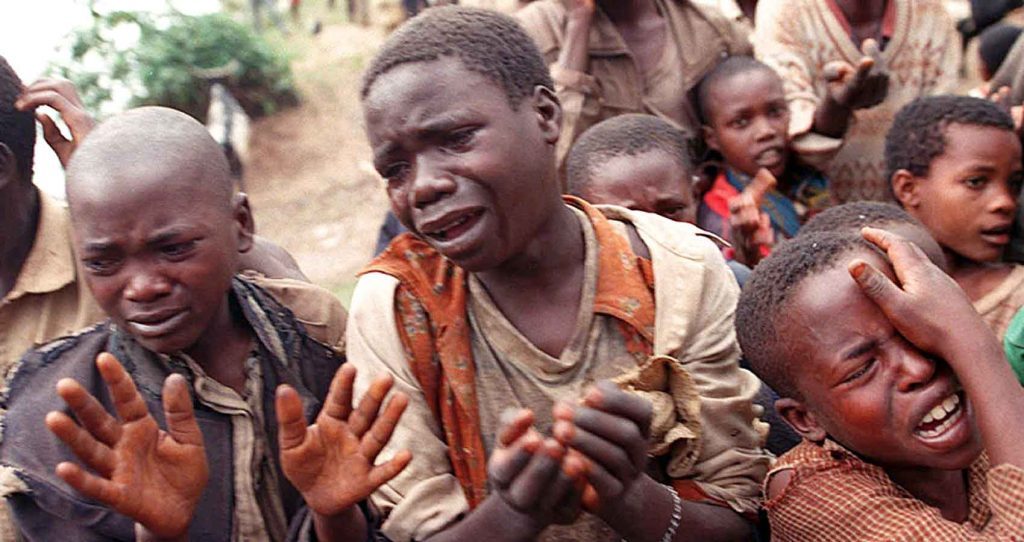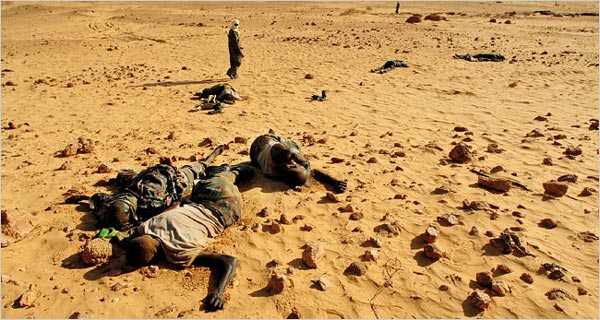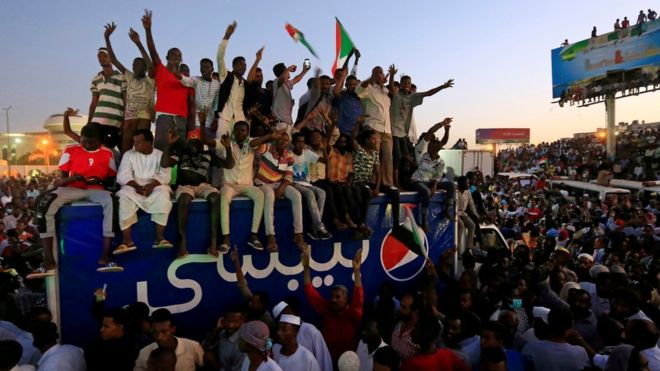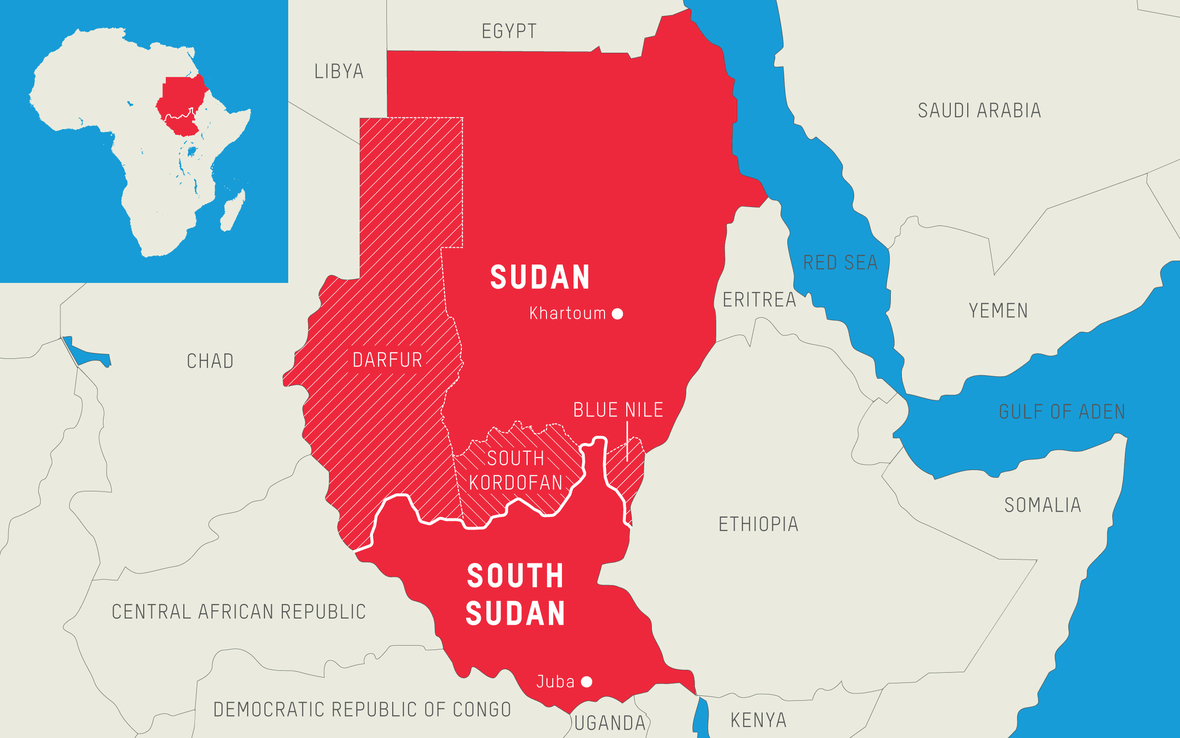Sudan Crisis – Everything You Need to Know

From Current Affairs Notes for UPSC » Editorials & In-depths » This topic
IAS EXPRESS Vs UPSC Prelims 2024: 80+ questions reflected
For the past several months, Sudan has been witnessing nationwide protests, resulting in a military intervention which removed Omar al-Bashir (Sudan’s longtime president) from power, thereby ending his brutal 30-year rule. The protests have been praised for using peaceful methods.
Since its independence from the British and Egyptian Colonial Rule in 1956, Sudan has seen famines, sectarian violence, and political crisis. The latest coup removing Bashir from the throne is actually the fifth such forcible takeover of the regime in Sudan.
What are the long-term causes?
Radical Islamism:
- In 1989, Omar-al-Bashir became the country’s ruler after toppling a democratically elected government.
- Bashir was backed by the National Islamic Front, an affiliate of the Muslim Brotherhood in Sudan.
- National Islamic Front wanted to enforce Saudi-sponsored orthodox Islam in Sudan.
- Thus the country went on to adopt this radical version of Islam under Bashir’s regime as opposed to the moderate Sufi tradition which was followed earlier.
- This radical Islam affected the status of women and minorities in the country.
Terrorism:
After Bashir captured the power, Sudan became the breeding ground for the jihadists across the world and even Osama bin Laden took refuge in Sudan in the 1990s.
Loss of oil reserves:
- The resentment of minorities in southern regions of the country since 1980 resulted in a bitter civil war that continued for 22 years and took over 20 lakh lives.
- The southern regions were finally seceded in 2011 to form a new country named South Sudan taking out more than 2/3rd of Sudan’s oil reserves.
Ruthless regime:

- The Non-Arab Muslims in gold-rich Darfur region accused Bashir of only favoring Arab Muslims = started an insurgency.
- However, a savage militia with the support of Bashir used torture, sexual violence, and starvation as a means to crack down the insurgency.
- Bashir has also outlawed many organizations such as trade unions who were opposed to his rule.
- He also jailed or murdered journalists and his political opponents.
- Thus in 2004, the US had named Bashir’s repression as ‘genocide’.
- In 2009, the International Court of Justice (ICJ) issued a warrant against Bashir.
What is the immediate cause?

- In December 2018, as per the recommendation of the International Monetary Fund (IMF), Sudan implemented austerity measures such as the devaluation of its currency (Sudanese Pound) and cut down the subsidies on wheat and fuel = led to a huge increase in inflation and food prices.
- The price rise in essential commodities sparked rage among the Sudanese population notwithstanding the ongoing issue of Bashir’s autocratic rule.
- Thus protests began against Bashir’s oppressive regime and its policies. In the next few weeks, the situation turned violent and engulfed the capital Khartoum and major metropolitan cities like Ombdurman.
- The government took strong action against the protestors by dispersing them using tear gas, shutting down the internet & social media outlets, and cutting off water & electricity services.
- In February, al-Bashir accepted the demands of protestors, however, he delayed the constitutional amendments that would have allowed him to run for the presidency next year.
- He also declared a state of emergency for a year and dissolved both central and state governments.
- All these actions by al-Bashir provoked the protests across the country.
- It has to be noted that, around 70% of the protesters were women in order to showcase their resistance against the country’s male-dominated system.
- Even religious leaders who were earlier in support of Bashir has now strongly opposed him.
Who were the most affected by this conflict?
- Conflict in Sudan led to widespread displacement of the population which particularly affected Women and girls and they constitute the majority of the displaced.
- Almost half of women and girls reported experiencing sexual violence while most incidences of violence go unreported.
- Furthermore, women and girls continue to bear the burden of caretaking of family even during the crisis.
- Due to high violence, frequent displacements and loss of livelihoods, daily tasks such as collecting water and firewood can make them target for attack.
What is the result of the conflict?
- As the protests continued for months, the military was finally compelled to intervene.
- The military removed Bashir from power (coup) and sent to Prison = ended his 30-year brutal rule.
- A Transitional Military Council (TMC) assumed power and it announced a 3-month emergency and a transition period of 2 years.
- The TMC has promised a transition of power to a civilian government in its aftermath while reserving few ministries for itself like Defence.
- After taking power, the TMC has appointed fresh personnel to important positions like the Army, Police and the Intelligence Wing.
- It has also removed the restrictions on the media.
Why is the protest still going on?
- Protestors were shocked by the coup and believe that the TMC is run by persons close to Bashir.
- It has to be noted that, the leader of the militia (backed by Bashir), General Mohammed Hamdan, was appointed as the Vice President of the council.
- Hence protests against the newly-imposed military rule still persist.
- The African Union Commission has also criticized the military takeover.
What are the other instances of Army retaining power?
- These type of conflict has already happened in neighboring nations where dictators fell amid public protests.
- In Egypt, Hosni Mubarak resigned as President in 2011, however, the military never gave up its privileges. Within 2 years, it was back in power through a coup.
- In Algeria, Abdelaziz Bouteflika resigned as President, however, the army has retained power. Therefore, protests still continue in the country.
The protestors want a democratic government in the country with a complete phase-out of military rule. The military should respect the demand and put an end to this conflict altogether which not only affects the country’s politics but also it’s economy and society as a whole. Therefore the oppressive regime built by Bashir should be replaced with an inclusive, responsive and democratic civilian government.
Also Read: [Table] Joint Military Exercises of India for UPSC Prelims
If you like this post, please share your feedback in the comments section below so that we will upload more posts like this.




Clearly Explained